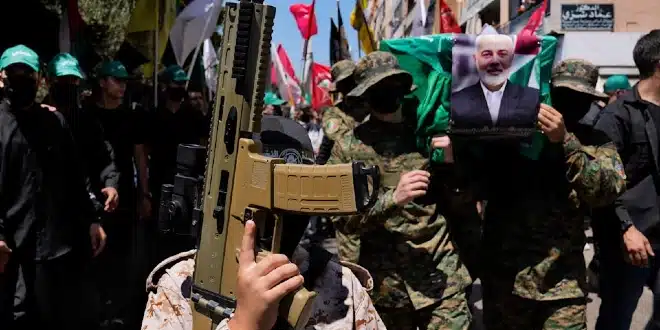Authorities in Syria and Lebanon are intensifying efforts to dismantle the longstanding armed presence of Palestinian factions within their territories. This strategic shift reflects broader regional realignments, including the decline of Iranian influence and the weakening of Hezbollah’s military capabilities.
Following the ousting of President Bashar al-Assad, Syria’s new leadership under President Ahmad al-Sharaa has initiated a campaign to centralize state control and reduce foreign-aligned militancy. A key aspect of this initiative involves disarming Palestinian factions that have historically operated with relative autonomy. Groups such as Hamas, Palestinian Islamic Jihad, and the Popular Front for the Liberation of Palestine-General Command have been instructed to relinquish their weapons and limit their activities to social and charitable functions. This move aims to prevent Syrian territory from being used as a launchpad for attacks against neighboring countries, particularly Israel.
The crackdown aligns with Syria’s broader efforts to distance itself from Iranian influence and seek international legitimacy. President al-Sharaa’s administration has expressed willingness to engage in indirect talks with Israel to ease regional tensions and has signaled openness to cooperation with Western nations in exchange for sanctions relief and economic support.
Lebanon’s Consolidation of State Authority
In Lebanon, the government under President Joseph Aoun is pursuing a similar strategy to assert state sovereignty and reduce the influence of non-state armed groups. The Lebanese Armed Forces have taken control of several bases previously held by Palestinian factions and have reclaimed informal border crossings with Syria that were used for smuggling weapons and fighters. These actions are part of a broader effort to dismantle networks aligned with Iran and Hezbollah.
The Lebanese government has also issued warnings to Palestinian groups, particularly Hamas, against conducting military operations from Lebanese territory. Following rocket attacks on Israel attributed to Palestinian militants, Lebanese authorities arrested several suspects and summoned Hamas representatives to emphasize the state’s zero-tolerance policy for unauthorized armed activities.
Regional Implications and Future Outlook
The disarmament of Palestinian factions in Syria and Lebanon marks a significant departure from decades of tolerance for such groups operating within refugee camps and other areas. These developments are indicative of a broader regional trend toward consolidating state authority and reducing the influence of foreign-aligned militias.


